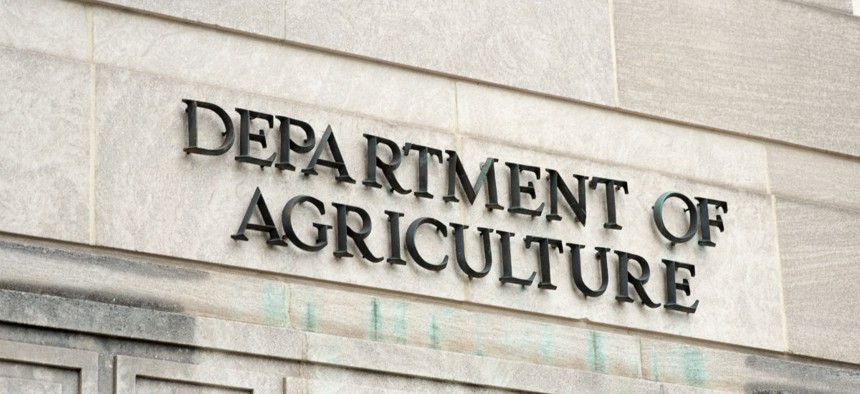
Kelleher Photography/Shutterstock.com
USDA Rebuts Author’s Critique of Trump Transition
Vanity Fair’s Michael Lewis wrote a scathing narrative about the “stunningly unqualified” political leadership at the department.
Celebrity author Michael Lewis, whose ongoing book project explores the Trump administration’s rocky transition to governance, has butted heads with his latest target: the Agriculture Department.
Lewis’s Nov. 2 piece in Vanity Fair is a scathing narrative based on interviews with former department officials who criticized Trump’s temporary appointees for arriving weeks late, showing little interest in the elaborate scientific orientation materials prepared by career staff, and focusing inordinately on the contentious issue of climate change.
His reporting, an Agriculture Department spokeswoman told Government Executive on Monday, “is false.”
According to Lewis: “The folks at the Department of Agriculture laid on a friendly welcome for the Trump transition team, but they soon discovered that most of his appointees were stunningly unqualified." He noted that "With key USDA programs—from food stamps to meat inspection, to grants and loans for rural development, to school lunches—under siege, the agency’s greatest problem is that even the people it helps most don’t know what it does.”
With a budget of $164 billion and responsibility for 193 million acres of national forest and grasslands, Lewis described the department’s role as “inspecting almost all the animals people eat, including the nine billion birds a year.”
According to Lewis, USDA’s staff had created elaborate briefings—2,300 pages, in 13 volumes—for the incoming administration. But no one showed up that first day after the election, or the next, a contrast with the early arrivals from the incoming Obama administration in 2008. No one showed at all until Nov. 22, when Trump appointee Joel Leftwich, a lobbyist for Pepsico, made a “cameo” appearance for an hour, Lewis wrote. A month later, Trump representative Brian Klippenstein, executive director of a nonprofit called Protect the Harvest, which protects hunter’s rights, visited the department, Lewis noted.
“The department maintained its composure—no nasty leaks to the press, no resignations in protest—even as Klippenstein focused, bizarrely, on a single issue,” Lewis writes:
“‘He came in and wanted to know all about the office on climate change,’” says a former U.S.D.A. employee. “He wanted the names of the people doing the work.” The career staff running the transition “politely declined to give Klippenstein the names.”
Later, the author said, the temporary leaders issued a directive barring the use of the phrase “climate change.”
In late summer, after Lewis had launched his book project, he set out “to get the briefings the Trump people had not,” he wrote: “Of the 14 senior jobs at the USDA that required Senate confirmation, only one had been filled: former Georgia governor Sonny Perdue was named secretary of Agriculture, in April. If Trump’s interest in a subject is to be judged by the speed with which he appointed his Cabinet secretaries, the Department of Agriculture is screwed: Perdue was dead last.”
Lewis wrote that Agriculture “did not respond to questions from Vanity Fair.” But a department spokeswoman said Lewis never reached out for comment. “The initial reporting is false,” the department said in a statement. “Transition team members were frequently engaged at USDA after Election Day, and a team of Beachhead Team members came aboard immediately on Inauguration Day.
“As with other presidential transitions, appointees were appropriately screened to place them in positions aligned with their abilities and experience,” the statement said. “Further, at no time has any directive been issued to bar the use of 'climate change' language and any assertion to the contrary is completely false. No one disputes that the climate is changing, as it has been for millions of years. Indeed, USDA has a number of programs designed to help farmers adapt to changing climate conditions.”







